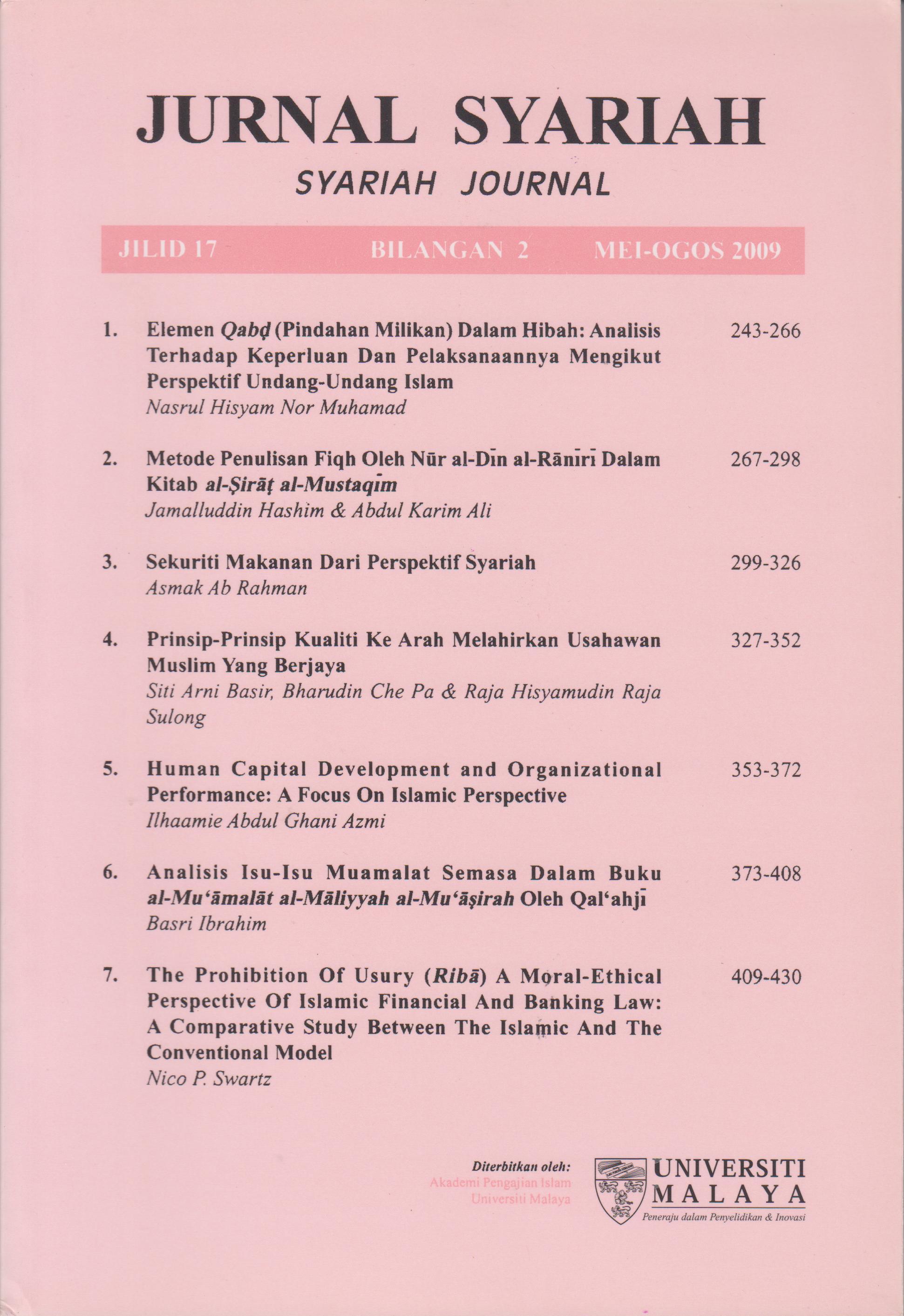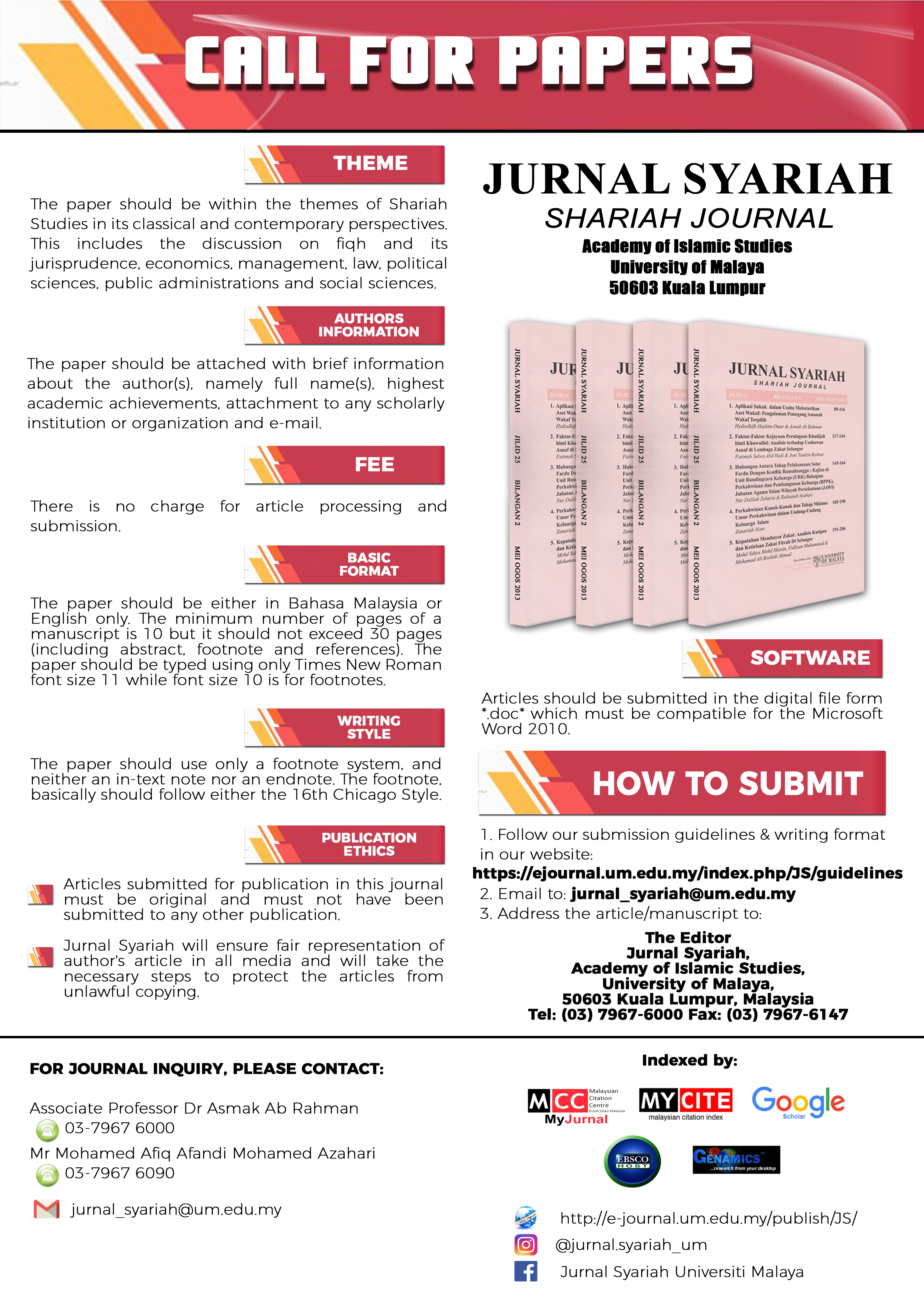HUMAN CAPITAL DEVELOPMENT AND ORGANIZATIONAL PERFORMANCE: A FOCUS ON ISLAMIC PERSPECTIVE
Keywords:
human capital development, organizational performance, service quality, productivity, IslamAbstract
In Islam, the objective of human capital development is not only to
produce a better person in terms of possessing technical knowledge,
skills and good values but also a person with a better soul. This is
because in Islam, a better person is a person who does not only possess
the worldly knowledge, skills and Islamic values but most importantly
practices them. Consequently, he or she will be a good worker that will
not act in his or her own interests but to be loyal to his or her employer
as he or she is fearful (taqwa) of Allah the Al-Mighty. Hence, human
capital development from Islamic perspective focuses on purifying
one’s soul (tazkiyah al-nafs), instilling Islamic values (al-ta’dib),
understanding the philosophies of Allah’s Oneness and Greatness (altawhid
al-uluhiyyah and al-rububiyyah) and the concepts of working
as a vicegerent (khalifah), a team (jama’ah), full submission to Allah
(‘ibadah) and a way to succeed (al-falah). Islamic human capital
development also stresses on the importance of knowledge, physical
development and the trainers themselves. In this respect, the teaching
of Islam highlighted several important approaches to rationalize
the concepts. They are, for example; through sermons (tadhkirah),
discussion of the Islamic principles in view of al-Qur’an and al-Hadith
(Prophet’s prescriptions) and congregational prayers. Human capital
development in conventional perspective, however; is concentrated
more on upgrading knowledge and skills. Good values are inculcated
informally through teamwork, ceremonies, training etc. but with less
focus on religious aspects. Therefore, human capital development from
Islamic perspective suggested an integrated and comprehensive solution
compared to the conventional perspective. As a result, the organization
will be able to perform better due to the maximum productivity and
profitability gained from quality services rendered by the personnel or
workers.
Downloads
Downloads
Published
How to Cite
Issue
Section
License
COPYRIGHT: All rights reserved. Not allowed to be reproduced any part of articles and contents of this journal in any form or by any way, whether electronic, mechanical, photocopying, recording or otherwise without permission in writing from the Chief Editor, Jurnal Syariah.



















